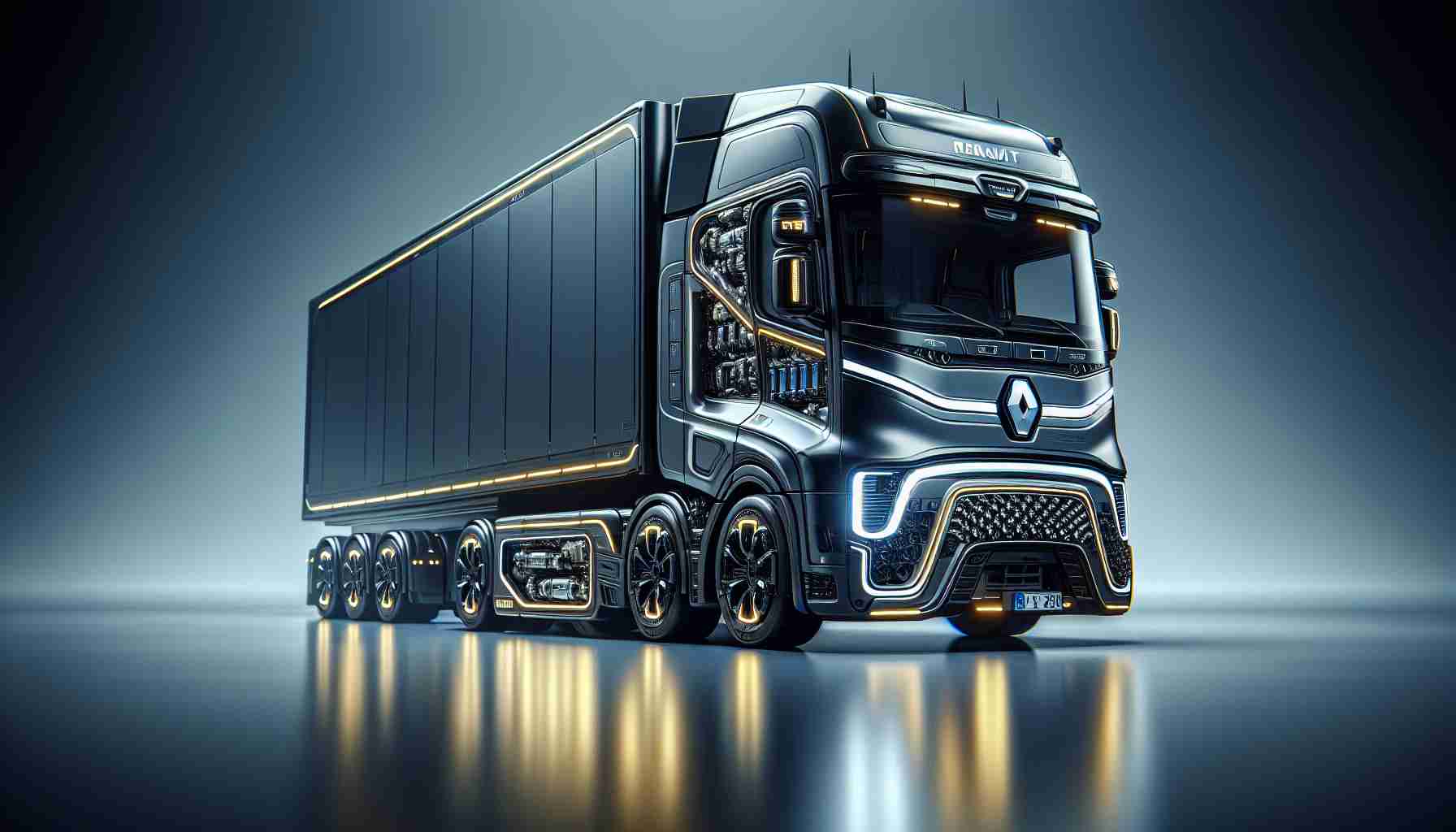
Revolutionary Electric Trucks to Transform Transportation
Renowned for pushing the boundaries of sustainable transport, Renault has introduced an exciting new electric truck, the E-Tech T, boasting an impressive range of 375 miles on a single charge. This remarkable distance is comparable to the journey between Los Angeles and San Francisco, setting a new standard for electric trucking.
Unlike its competitor, the Tesla Semi, which offers a range between 300 to 500 miles, the E-Tech T features an innovative E-axle setup. This technology integrates the motors and transmission at the rear, optimizing space for additional battery packs, thus enhancing performance and efficiency.
Since the launch of its electric trucks, Renault reports that customers have collectively reduced carbon dioxide emissions by 32,000 tons, showcasing the vehicle’s eco-friendly capabilities. Experts, including Renault Trucks’ senior vice president of electromobility, emphasize that achieving a 600 km range by 2026, alongside improved charging infrastructure, will equal diesel truck efficiency.
Traditionally, heavy trucks have relied on diesel, which not only harms the environment but also contributes to public health issues. With the expansion of charging stations, both personal and commercial vehicles stand to benefit environmentally.
Orders for this next-generation electric truck will be open by mid-2025, paving the way for a cleaner, greener future in transportation.
The Future is Electric: How Renault’s E-Tech T Electric Truck is Setting New Standards
Renowned for pushing the boundaries of sustainable transport, Renault has unleashed an exciting new electric truck, the E-Tech T. This cutting-edge vehicle boasts an impressive range of 375 miles on a single charge, comparable to the journey between Los Angeles and San Francisco, and setting a new standard for electric trucking.
Key Features and Innovations
The E-Tech T distinguishes itself with an innovative E-axle setup. This technology integrates motors and transmission at the rear, optimizing space for additional battery packs and thereby enhancing performance and efficiency. This feature enhances both payload capacity and vehicle stability, essential elements in the trucking industry.
Sustainability Impact
Since the launch of its electric trucks, Renault reports that customers have collectively reduced carbon dioxide emissions by 32,000 tons, showcasing the vehicle’s eco-friendly capabilities. Transitioning from traditional diesel trucks to electric options not only aligns with global sustainability goals but also addresses public health concerns linked to diesel emissions.
Market Trends and Predictions
The electric truck market is projected to grow significantly over the next decade, driven by innovations in battery technology and an increasing emphasis on environmental sustainability. With experts predicting that achieving a 600 km range by 2026—alongside improvements in charging infrastructure—will equate diesel truck efficiency, the race for electric trucking solutions is more competitive than ever.
Potential Limitations
While Renault’s E-Tech T offers impressive specifications, there are challenges to consider. Charging infrastructure remains a crucial factor in the widespread adoption of electric trucks. Although investments are underway to expand charging station networks, the current availability may not fully support long-haul routes in all regions. Additionally, the upfront cost of electric trucks can be higher than that of traditional diesel models, which may deter some fleet operators.
Pricing and Availability
Orders for this next-generation electric truck are expected to open by mid-2025, offering businesses an opportunity to enhance their fleets with a cleaner, greener alternative. The pricing has not been disclosed yet, but industry analysts believe that as electric truck technology becomes more mainstream, costs will decrease, making them more accessible to a wider range of operators.
Conclusion
Renault’s E-Tech T represents a pivotal moment in the evolution of sustainable transportation. With its advanced technology, impressive range, and commitment to reducing carbon emissions, it promises to transform the trucking industry. As electric vehicles become more prevalent and the necessary infrastructure develops, we can expect a significant shift in how goods are transported, paving the way for a cleaner and more sustainable future.
For more information about Renault’s innovations and their impact on the transportation industry, visit Renault.



